The Importance of Reading and 7 Helpful Reading Readiness Tips
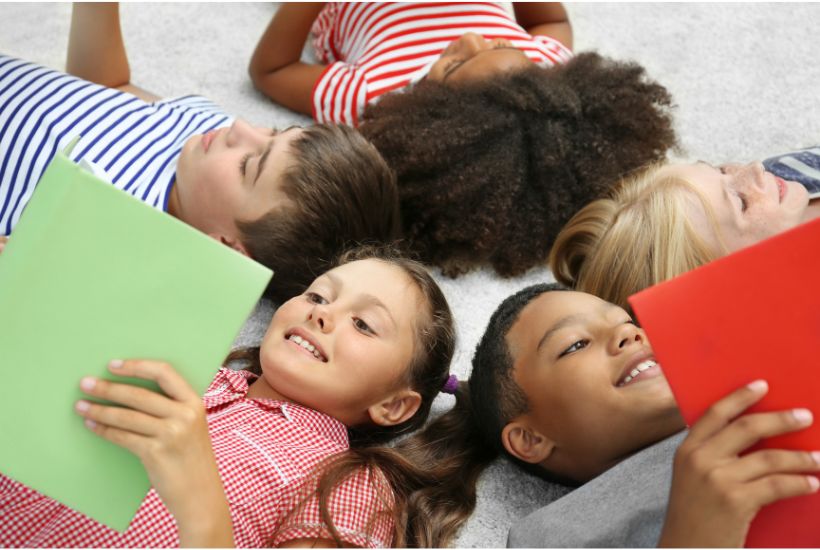
Many of you may not know this but, in addition to running Beyond the Bookends, I am also a trained, licensed Speech-Language Pathologist with teaching certification who has been working with children for 15 of my 20 years in the field. I see firsthand the power and importance of reading.
I am in a unique position to offer helpful tips for reading readiness. I can combine two of the things I love the most: Books and language to help demonstrate the importance of reading skills to your children and with your children.
Of course, if you have any concerns about your child’s development, please consult with your pediatrician. This post and the ones that follow are not meant as a diagnostic tool. Instead, it is my hope that this series of posts will help jump-start your love of reading with your child.
Importance of Reading Books
Why is Reading Important? // Importance of Reading // // Reading Readiness Tips // More Information By Age // Reading Stages Explained // FAQ About Reading Readiness //

Why is Reading to Children Important?
Kirsten and I are so excited about this post. The posts will primarily address the importance of reading to your child and developing reading readiness skills, but I will also look at many related areas in further posts that are a part of this series.
As a parent, I am always looking to help my children in any way I can but there is so much information that it can be overwhelming. It can feel like you are doing something wrong.
Rest assured, every time you read a book to your child you are helping them develop their language skills. You are also giving them important lessons in communication.
The Importance of Reading
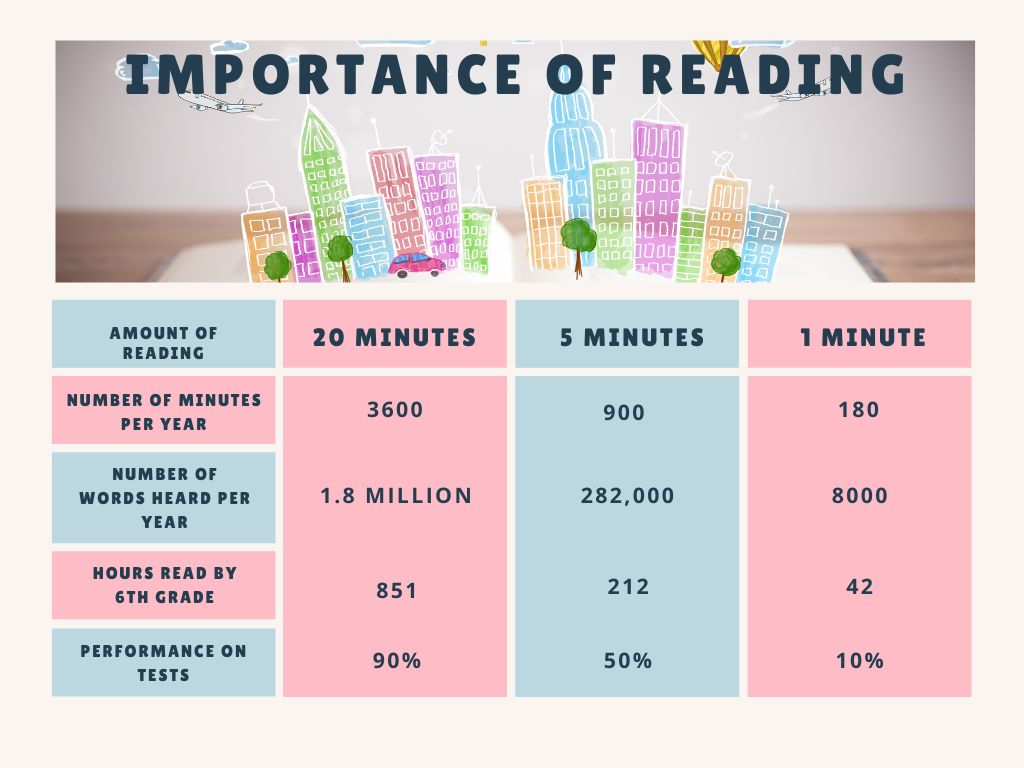
What does this chart show? It shows the importance of reading to children. There is a huge difference in the number of words heard a year, the number of hours read, as well as performance on tests between kids who read twenty minutes a day vs minutes a day vs one minute a day.
If your child reads for 5 minutes a day, they will have read for 212 hours by the end of 6th grade. If they read for 20 minutes, they will have read 851 hours by the end of 6th grade. The difference is staggering for a mere 15 minutes. And the difference is clear through performance on tests. This chart makes the importance of reading books very clear.

Helpful Reading Readiness Tips:
- Read to your baby/ child even if you think they aren’t listening. You would be surprised how much kids can take in even if they are doing something else (not including playing on an electronic device). Kids are constantly learning new things and reading to your child is a great way to expose them to language.
- Engage with your child to help further their language development. You can narrate what you are doing throughout the day as well as narrate what your child is doing. Ex: I am going to put on your shoes now. Left shoe, right shoe going on your feet.
- Make story time fun and interactive. There are many ways to make reading a favorite time of day. Change the intonation of your voice, make silly voices, and let your child or baby help you turn the pages. You can point out where you are reading as well. Don’t worry about being too silly. Getting your child to engage is the most important thing for reading readiness skills.
- Let your child’s imagination run wild while reading. Ask a lot of questions- even when your child cannot talk. If they cannot answer, you can answer for them. Be sure to let your child expand their imagination. You can vary the books you read so they are exposed to new words. Your local library is a perfect place to visit to pick out new books regularly.
- You can help develop your child’s reading readiness by choosing the right books. If you are not sure where to start, go to the library and pick out a variety of books to see what your child enjoys the most. Of course, I have so many recommendations for you as well. You can have a look at my posts below with choices of books for babies through emergent readers.
- The importance of reading books that are at the correct level can grow your child’s confidence as a reader. This is a really important tip. Typically, kids will understand at a higher level than they can read themselves. If they are reading independently, let them guide the level. If they want to read a graphic novel, GREAT! Any reading is better than nothing. You can help them get to a higher level of independent reading by reading to them.
- Incorporate reading into your daily routine. From the time your baby comes home until they are independent readers, you should incorporate reading into your daily routine to help them further their reading readiness skills. If they are independent readers, choose books that are slightly higher than what they can read independently. Stop to explain new vocabulary and ask questions. You can do they same with babies even when they cannot answer you. Developing language skills is the first step on the path to becoming a lifelong reader.
Steps Toward Reading Stages explained
1. Reading Readiness
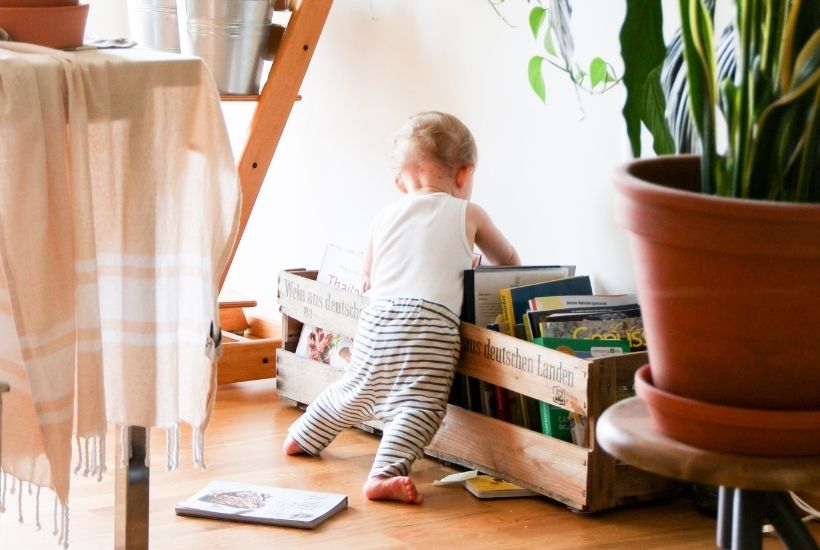
Essential Tips for Reading to Baby
This post explores ways to interact with your newborn to encourage language skills in everyday life. It also explores reasons why reading books to newborns is important. It includes a list of books for the baby’s first year.
Each book also comes with an explanation of how the books can be used to promote reading readiness skills with your baby.
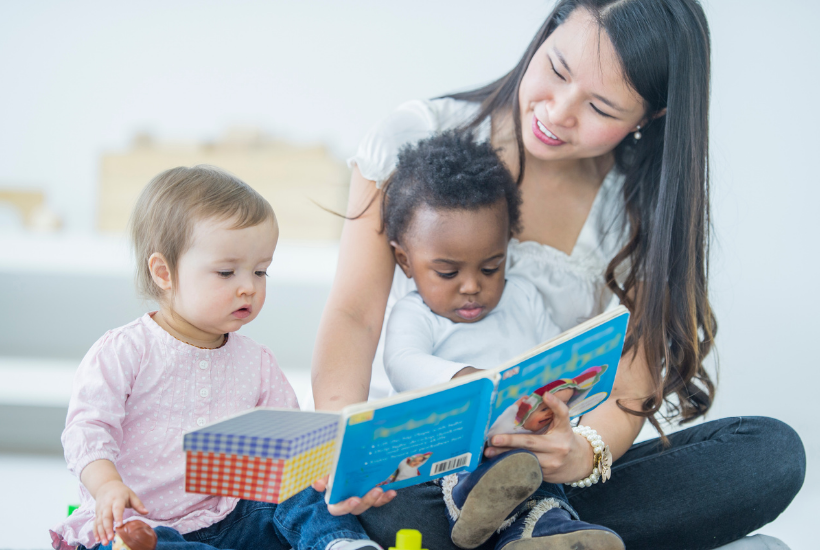
Language Development Books for a 1-year-old
Learn how to engage with your child to further their vocabulary and language development with reading. This curated list includes books in categories like animals, colors, transportation, emotions, and more.
Each book recommendation is accompanied by suggestions on how to engage with kids ages 12-18 months and 18-24 months while reading and helps promote reading readiness.
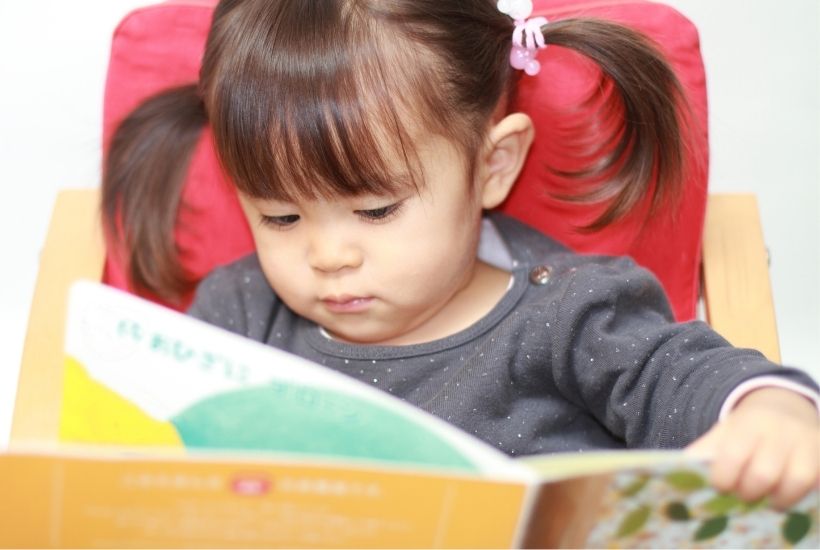
Educational Books for 2-Year-Olds: Making Story Time Interactive and Fun!
In this post, I explore interactive stories, books that introduce prepositions to toddlers, and question-and-answer books.
11 books are paired with tips on engaging with children through play after reading. As your toddler investigates the world, get them engaged in reading.
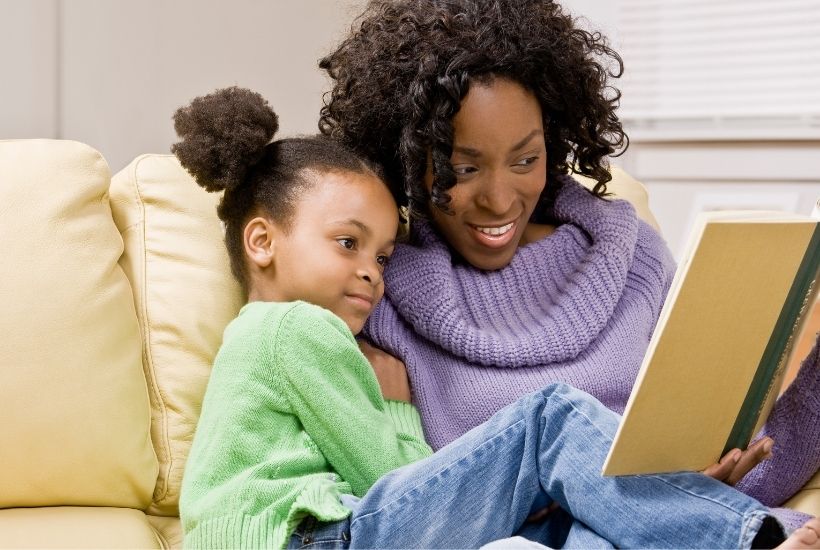
Educational Books For 3-Year-Olds: Imagination and Learning!
This article features books that teach sequencing, inspire storytelling via wordless picture books, cultivate creativity with imagination books, and more.
Each book selected comes with suggestions to help your toddler master the fundamentals they will need for preschool and creates the base for the pre-reading skills I will be discussing next.
2. Phonological Awareness and Pre-reading skills
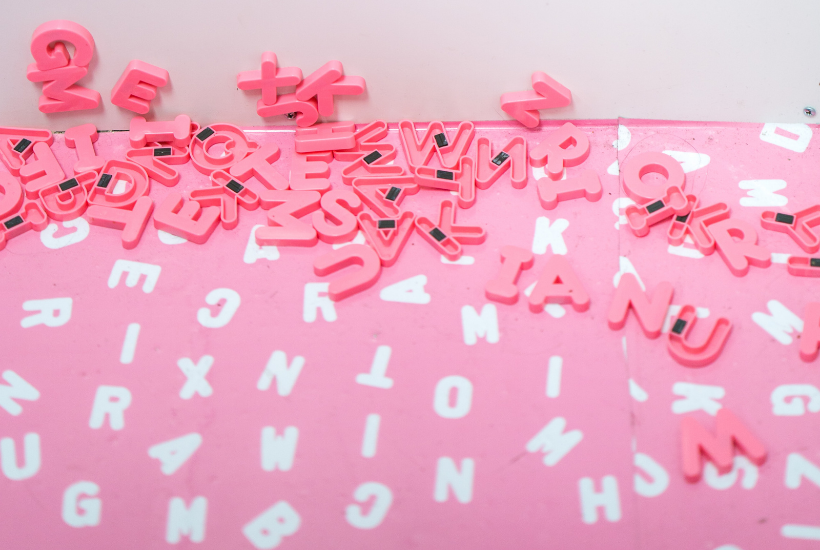
15 Books Important for Phonological Awareness and Pre-Reading Skills
In this post, I discuss phonological awareness and its importance in developing reading readiness skills in preschoolers.
We recommend books that help with rhyming, alliteration, teaching syllables, phoneme manipulation, and more. Mastering each of these skills is essential to create a good foundation for learning to read.
3. Beginning Reader and Emergent Reader Books
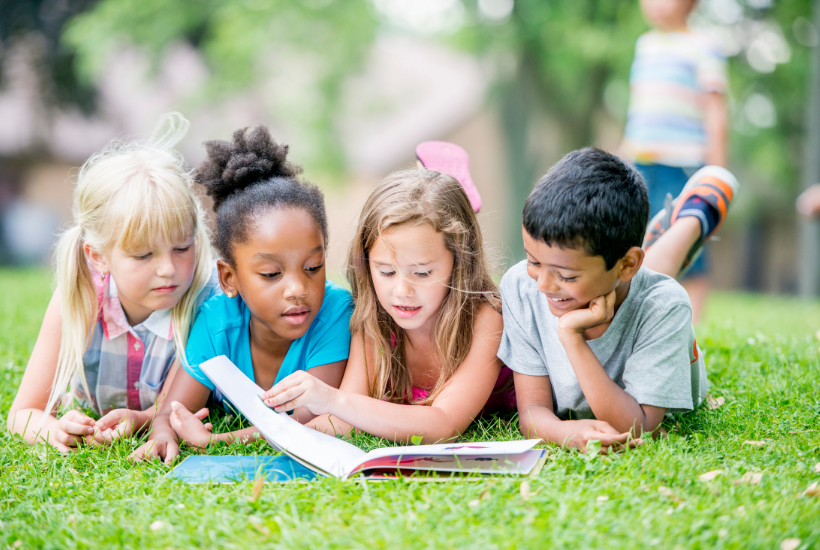
The Best Books for Beginning Readers
Get suggestions for decodable books, stories that teach sight words, and phonics books to help your new reader learn the basics of reading.
There is also a section on tips to help encourage your child. These kiddos have a lot of new information to process, so try to keep reading fun!
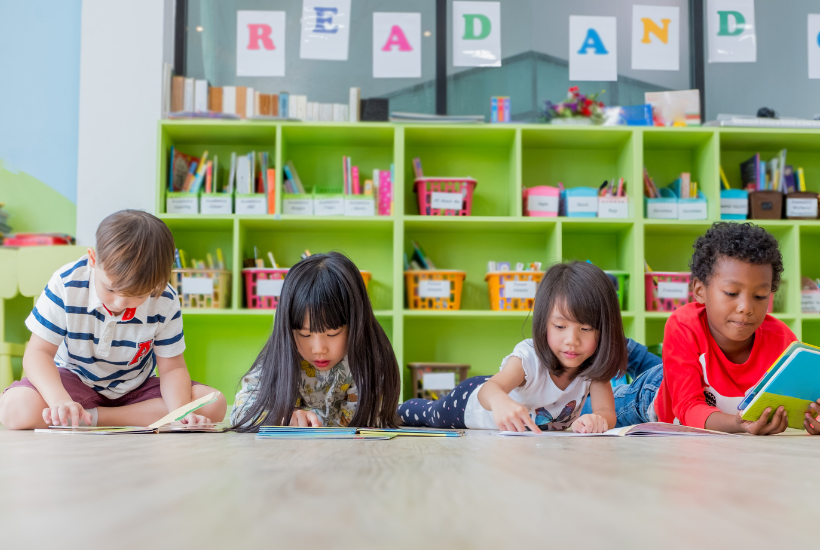
Early Reader Books for Emergent Readers Learning New Words
Get tips on how to create a library filled with the perfect early-reader books for your new reader!
We break the book suggestions into levels so that you can upgrade your child’s book selection as they learn to decode words more easily and become more confident with reading overall.
More on the Importance of Reading and Reading Readiness Skills
We have been wanting to do something on the importance of reading and developing reading readiness skills for a really long time. If there is something that you want to ask or you have a topic you’d like us to cover, just send us an email and let us know. You can also find us on Instagram. Happy reading!!!
Frequently Asked Questions About Reading Readiness
What is Reading Readiness?
Reading readiness refers to the stage in development when your child is ready to read. It will take a while before your child becomes a confident and independent reader.
Why is it Important to Read daily?
Children’s brains develop primarily in the first 5 years of life. When I read to and with my kids, I am helping improve their vocabulary, grammar, and language skills as well.
Nagy & Herman (1987) did a study that shows that reading to your child 20 minutes a day will expose them to 1.8 million words and they will have read for 851 hours by 6th grade.
Contrast this to a child who reads for 5 minutes a day. They will hear 282,000 words and will have read for 212 hours.
And a child who reads for 1 minute a day? That is the equivalent of 8000 words a year and only 42 hours of reading by 6th grade.
What are the Benefits of Reading to Your Child?
When you open a book, you are transported somewhere new without ever having to get up. When you read to a child, you are helping give them experiences that they may never experience otherwise.
Books can provide ways for children to have new experiences, use their imagination, and develop new connections in their brains.
Reading helps with social, emotional, and cognitive development.
When Should I Start Reading to My Baby?
You can start reading to your baby before they are born. You can never start too early. For more detailed information, check out our post: First Books for Baby and Essential First-Year Reading Tips.
You can also check out this article on the Importance of Reading at Bedtime sent to us by a reader named Charlotte.
What Are the Best Early Readers?
We have a list of more than 40 early readers to help your emergent reader become and independent reader. You can find those resources in our post 40+ Early Reader Books for Emergent Readers to Enjoy Now
What Are the Best Books for Helping My Child Learn to Read?
The key to learning to read is phonological awareness skills. You can check out our post 15 Books Important for Phonological Awareness and Pre-Reading Skills for tons of information and resources
What are the Steps Toward Reading Readiness?
When I talk about the benefits of reading to children, I need to also talk about the steps toward reading readiness. The posts below will all help your child on their reading journey at any age.
5 Comments